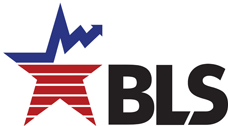Sorry bout that,
1. Everything is costing more.
2. If I were to name something, price is up.
3. That dude is out of the bag, everything crazy expensive.
4. Our economy is like an old dude now, no one can afford him.
5. Rents through the roof, people are on the streets more than ever, look at LA.
6. Even to find a graves has gone up in price, its nuts!!!
7. Every time I go to the store I pay more and get less.
8. Most my money goes for food.
9. And all those things needed to afford my lifestyle costs more.
10. There is nowhere to run from InflatioN.
11. The children will see how nuts you've collectively made it for them.
Regards,
SirJamesofTexas
Most of what you say here is of course true!
We and almost the entire world went through a big bout of inflation during the re-opening after Covid (which earlier drove commerce and oil prices down), from the Russian invasion of Ukraine, and from oil price increases (which profited U.S. oil and liquified gas industries immensely) and logistics shocks too.
Also the increasing decoupling and tit-for-tat sanctioning and “reshoring” of key industries from China has raised prices and led to shortages. Finally, funds that went to businesses and individuals during the Covid contractions inevitably took time to work themselves out of the system. Many but not all of these problems are now resolved or resolving themselves.
The Fed and other world banks had since 2008 adopted practically a zero interest “easy money” policy — without causing inflation! — that poured many trillions of dollars and credit into the world economy. That
should have led to inflation according to traditional economic theory. But it did
not, probably mostly because of cheaper commodities produced in cheaper labor countries abroad and because productivity gains also held prices down, while much wealth was simply absorbed into financial assets held by the wealthy.
Central banks had been so accustomed for so long to issuing “free money” to their favorite clients without it effecting the very low inflation in Europe and the U.S. that they were slow to react and raise interest rates when inevitable inflation started up after Covid.
Now the Fed — in my opinion correctly — has adopted an aggressive policy of raising rates. Inflation is going down gradually, but the relation between rates and inflation in the U.S. is not so strong as it used to be, and inflation may not go down to the historically very low 2% target level … for years.
Over the whole Industrial Revolution annual inflation in the U.S. averaged 4-5%, and in the ‘70s we had some terrible years of high double digit inflation after the end of the Vietnam War and the Middle East oil embargo. In those years, moreover, there were many more workers in unions with cost-of-living escalators in their contracts. Once general inflation goes up, prices almost never go back down to their earlier level unless there is Great Depression — which in the U.S. brought the only period of
general price deflation in U.S. history.
The predicted “hard landing” and recession after the Fed’s dramatic interest raising has not and may not come after all, or it may prove very mild. The U.S. economy has proven surprisingly resilient and of course is doing much better than the economy in Europe, where oil and gas is of course very expensive and the effects of the Ukraine War and logistic challenges too are more serious.
One good thing is that rising interest rates also means that working- and middle-class “savers” no longer are forced to speculate in the casino-capitalist stock market to keep ahead of inflation — which is as it should be.
Most of these fundamental changes have little to do with this or any future administration.
None of our present parties are really interested in fundamentally changing our capitalist system, or even its tax or incentive structures. Given that reality, at least the Biden Administration has been wise enough to let the Fed do its thing, limiting itself to incentivizing private industry to develop infrastructure and critical security technologies of the future. It has not tried to pressure the Fed to stop raising interest rates, or to go lower still to “Zero Interest Rate Policy” (ZIRP) — as Trump famously did before Covid.

